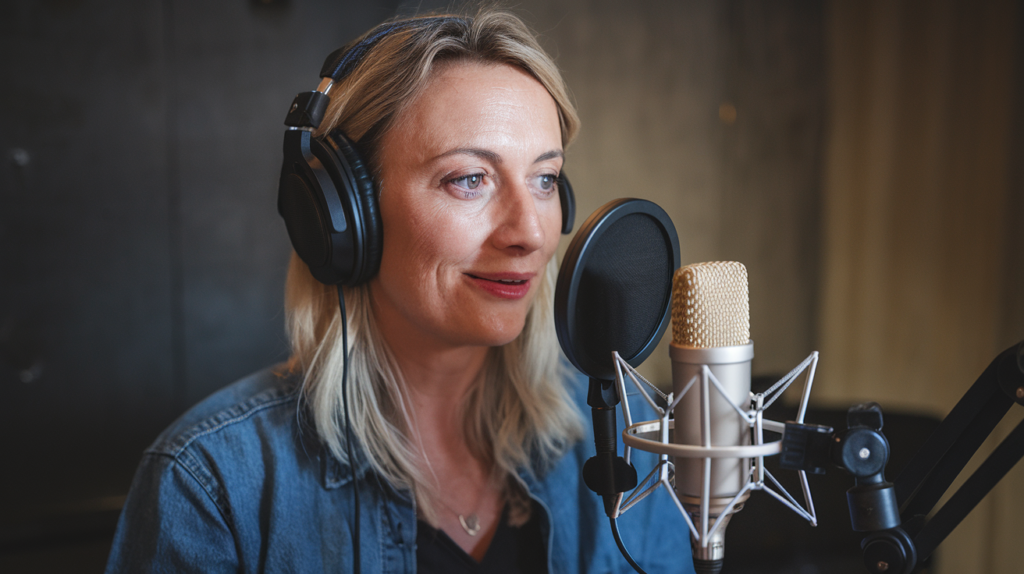Key Takeaways
- Distinctive Characteristics: Marseille French features unique pronunciation and vocabulary that reflect the city’s vibrant Mediterranean culture, setting it apart from other regional accents in France.
- Pronunciation Variations: Speakers often drop consonants at the end of words, resulting in a relaxed and melodic speech style. For example, “c’est” may sound like “sé.”
- Cultural Vocabulary Influences: The accent incorporates terms from Provençal and other local dialects, enriching everyday language with expressions like “pichoun” (little) and “boudin” (blood sausage).
- Comparison to Other Accents: Unlike the polished Parisian French, which emphasizes clarity, Marseille French is characterized by its informal delivery and expressive intonations.
- Regional Diversity: While sharing similarities with other southern dialects, Marseille French maintains distinct sounds and phrases that contribute to the rich linguistic landscape of France.
- Cultural Heritage Reflection: Understanding Marseille French provides insight into the city’s history and identity, showcasing how language embodies cultural richness and local traditions.
Have you ever wondered what makes Marseille French stand out from other regional accents? Nestled along the Mediterranean coast, Marseille boasts a rich cultural tapestry that’s reflected in its unique way of speaking. While many French dialects have their quirks, the accent and vocabulary of Marseille add a vibrant flair that can be both captivating and challenging for outsiders.
Overview of Marseille French
Marseille French stands out due to its distinctive characteristics that reflect the city’s vibrant culture. This regional accent features unique vocabulary and specific pronunciations, making it captivating for both locals and visitors. The accent’s melodic intonations often resonate with the Mediterranean spirit, giving it a lively flair.
You might notice that speakers often drop certain consonants at the end of words. For example, “c’est” can sound more like “sé,” while “je suis” may become “j’suis.” Such variations contribute to an informal and approachable style that’s common in everyday conversations.
The influence of local dialects also shapes Marseille French. Words borrowed from Provençal—a regional language—enrich the vocabulary, adding depth to expressions you won’t find in standard French. For instance, terms like “pichoun” (meaning little) or “boudin” (a colloquial term) showcase this blend.
Understanding Marseille French can pose challenges for those unfamiliar with it. The rapid pace of speech and unique phrases might require some getting used to. However, once you grasp its nuances, you’ll appreciate how this accent embodies the essence of life in Marseille—a city known for its diversity and warmth.
In essence, Marseille French is not just an accent; it’s a cultural experience that reflects the history and vibrancy of its people. Whether you’re engaging with locals or exploring media featuring this dialect, embracing its uniqueness offers a deeper understanding of what makes Marseille special.
Characteristics of Marseille French
Marseille French stands out due to its unique attributes that reflect the city’s cultural essence. This accent combines a lively rhythm with distinct sounds, making it both captivating and challenging for newcomers.
Pronunciation Features
Pronunciation in Marseille French includes several notable features. Consonants often drop at the ends of words, giving speech a more relaxed feel. For instance, “bonjour” may sound more like “bonjou.” Additionally, vowel sounds can shift, creating a melodic quality that’s characteristic of the region. The accent tends to emphasize certain syllables, adding an expressive flair that mirrors the vibrant lifestyle of Marseille’s inhabitants.
Vocabulary Distinctions
The vocabulary in Marseille French showcases rich local influences. Unique terms from Provençal—such as “pichoun” (meaning “little one”) and “boudin” (referring to blood sausage)—add flavor to everyday conversations. You might also encounter expressions that convey warmth and familiarity, reflecting the friendly nature of Marseillais culture. Overall, this distinctive vocabulary contributes significantly to understanding not just the language but also the spirit of life in this Mediterranean city.
Comparison with Other Regional Accents
Marseille French stands out against other regional accents in France, showcasing unique features that reflect the city’s rich culture. Understanding these differences can enhance your appreciation of Marseille and its vibrant community.
Parisian French
Parisian French represents the standard dialect of France, often seen as more formal and polished. Pronunciation tends to be clearer, with less emphasis on dropping consonants compared to Marseille French. For instance, “bonjour” remains distinctly articulated in Paris, while in Marseille it may soften to “bonjou.” The vocabulary also differs; Parisians might use terms like “chic” or “à la mode,” whereas Marseillais infuse their speech with local expressions such as “pichoun” or “boudin.” This contrast highlights how geography influences language and cultural identity.
Southern French Dialects
Southern French dialects share some similarities with Marseille French but maintain their distinctiveness. Accents from regions like Provence or Languedoc feature melodic intonations similar to those in Marseille but may incorporate different local vernaculars. While both areas exhibit a relaxed pronunciation style, the specific sounds and phrases can vary significantly. For example, southern accents might emphasize certain vowel sounds differently or include unique local idioms unfamiliar even to Marseillais speakers. These variations contribute to a diverse linguistic landscape across southern France.
Other Regional Variations
Beyond Paris and the south of France lie numerous regional variations that add depth to the country’s linguistic tapestry. Each region boasts its own accent traits—like the nasal tones of Northern accents or the distinctive twang found in Alsatian dialects. Such diversity enriches communication within France and showcases how culture shapes language over time. Familiarity with these regional nuances allows for deeper connections when interacting with individuals from different backgrounds.
Recognizing how Marseille French compares with other accents enhances your understanding of not just language but also regional identities throughout France. With each accent telling a story about its people, exploring these differences fosters greater appreciation for the cultural richness that defines this beautiful country.
Cultural Influences on Marseille French
Marseille French showcases a blend of cultural influences that shape its unique characteristics. The city’s rich history as a port has exposed it to various languages, including Italian, Arabic, and Provençal. Each interaction contributes to the distinct flavor of the accent and vocabulary.
You might notice that local terms often reflect this diversity. Words like “pichoun” (little one) and “boudin” (blood sausage) illustrate how Marseille French incorporates elements from neighboring dialects. This inclusion enriches everyday conversation, making it vibrant and expressive.
Pronunciation plays a significant role in conveying the cultural essence of Marseille French. The accent drops consonants at word endings, giving words a melodic quality. For instance, “bonjour” becomes “bonjou,” which embodies the laid-back lifestyle of Marseillais inhabitants.
Compared to other regional accents in France, Marseille French stands out with its informal speech patterns. While Parisian French maintains clarity with polished pronunciation—often articulating “bonjour” distinctly—Marseille leans toward softness and warmth in delivery. This difference reflects not just language but also lifestyle; it’s about connection rather than formality.
Southern dialects share similarities with Marseille’s musical intonations but have their own vernacular variations. Understanding these nuances deepens your appreciation for France’s cultural tapestry. Recognizing the influence of local traditions helps you grasp how identity shapes communication across regions.
Ultimately, Marseille French isn’t merely an accent; it’s a celebration of the city’s heritage and spirit—a true reflection of the people who call it home.
Conclusion
Embracing the nuances of Marseille French gives you a unique glimpse into the city’s vibrant culture and history. Its distinctive sounds and expressions not only set it apart from other regional accents but also reflect the laid-back lifestyle of its inhabitants. By appreciating these differences, you deepen your understanding of France’s diverse linguistic landscape.
Whether you’re navigating conversations in Marseille or simply indulging in its rich cultural offerings, recognizing the charm of this accent enhances your experience. The lively spirit captured in Marseille French speaks volumes about its people, making every interaction feel personal and engaging. So dive into this captivating dialect and let it enrich your connection to one of France’s most dynamic cities.
Frequently Asked Questions
What is the Marseille French accent?
The Marseille French accent is a unique regional dialect characterized by its melodic intonations and relaxed pronunciation. It features distinctive vocabulary influenced by local dialects, especially Provençal, making it vibrant and expressive.
How does Marseille French differ from Parisian French?
Unlike Parisian French, which is more formal and polished, Marseille French has a softer pronunciation with informal speech patterns. For instance, “bonjour” may sound like “bonjou,” reflecting the laid-back culture of Marseille.
What cultural influences shape the Marseille accent?
Marseille’s history as a port city has exposed it to various languages, including Italian and Arabic. This diverse linguistic background contributes to the distinct flavor of Marseille French vocabulary and expressions.
Why is understanding regional accents important?
Recognizing different regional accents enhances appreciation for France’s cultural diversity. Each accent carries historical significance and reflects the identity of its people, enriching overall language understanding.
Are there unique words in Marseille French?
Yes! Unique terms like “pichoun” (little one) and “boudin” (blood sausage) are examples of how local vocabulary enriches everyday conversation in Marseille, showcasing its lively culture.







